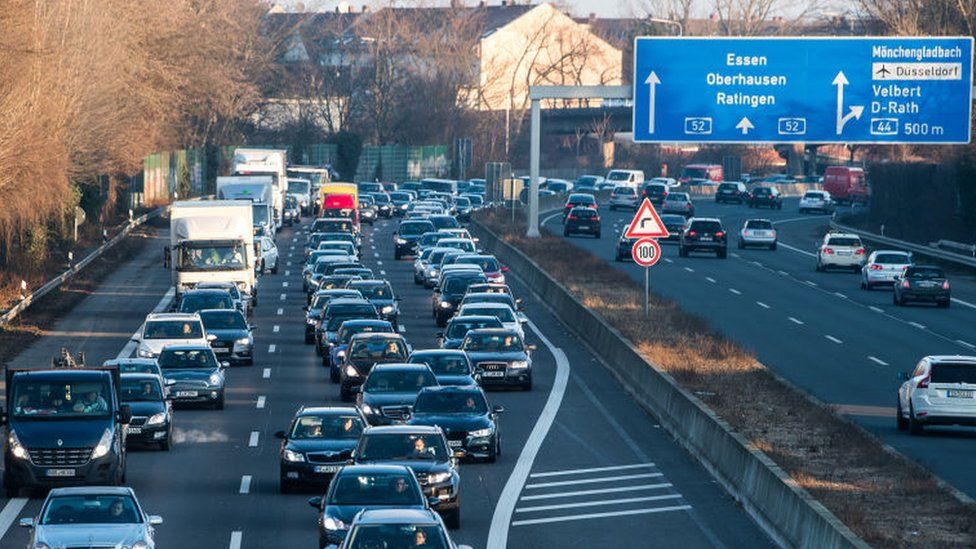The automotive industry of Germany is facing significant challenges as electric vehicles lose ground and uncertainties grow. A dealership advisor recommends against purchasing cars at this time, citing numerous unresolved issues.

The German automotive industry is undergoing a dramatic transformation, marked by stricter environmental regulations clashing with technological limitations. Major car manufacturers have already warned that the government’s climate targets may be overly ambitious. Compounding the problem, Chinese manufacturers, especially BYD, are exerting price pressure on the electric vehicle (EV) market. Consumers are left wondering whether to choose a traditional combustion engine or an electric car.
Sven Mummenhoff, a sales consultant at a car dealership, recently shared his perspective with Die Zeit: “I wouldn’t buy a car anymore,” he advised, referring to both traditional combustion engines and electric vehicles. He pointed out the numerous uncertainties surrounding fuel prices, electricity costs, and government incentives. “I would lease a car, essentially rent it, and then reassess the situation in three or four years,” Mummenhoff added. This sentiment reflects a broader sense of uncertainty that has gripped both private buyers and businesses across the country.
The electric vehicle “disaster”: A significant drop in demand
Just a few years ago, the future of electromobility seemed secure, bolstered by the European Union’s “European Green Deal” and the German government’s subsidies for electric vehicles. However, in December 2023, the German government abruptly halted its “environmental bonus” program, leaving the EV market in crisis—worse off than the overall automotive sector.
The trade magazine Auto, Motor & Sport labeled the situation as “The Great Electric Vehicle Disaster,” describing the decline in EV sales as catastrophic. In July 2024, the registration of battery electric vehicles (BEVs) plummeted, with only around 30,800 new BEVs registered—a drop of 36.8% compared to July 2023, according to the ADAC, citing data from the Federal Motor Transport Authority (KBA). In contrast, hybrid vehicle registrations increased by nearly 20%, reaching approximately 80,000 in the same month.
While industry insiders recognize that EVs will eventually dominate the market, there is uncertainty about whether this shift will align with the EU’s ambitious goals. By 2030, about half of all vehicles must be electric. Despite this, Mummenhoff believes it is not his role to push customers towards EVs, stating that incentives should come “from higher up.”
Manufacturers focus on technology openness: Combustion engines as an alternative
The debate returns to traditional combustion engines. In July, gasoline-powered vehicles accounted for 35% of new registrations, while diesel vehicles made up 18.1%. Several automakers have voiced support for “technology openness,” meaning they will continue to offer combustion engines alongside EVs. Toyota, for example, plans to maintain a diverse lineup that includes combustion engines, even in the electric age. BMW is following a similar strategy, investing in both technologies to mitigate risks associated with focusing solely on one powertrain.
Gill Pratt, a scientist at Toyota, explained to the portal Edison: “Many in the automotive industry have realized that our approach is the better one.” He cited the still-lagging development of electric infrastructure as a reason for this strategy, noting that in some parts of the world, it may take decades for EV adoption to gain significant momentum.
A shift in focus: From automotive to military technology?
Despite the “electric crisis,” the automotive industry is undergoing a fundamental shift. Moritz Schularick, head of the Kiel Institute for the World Economy (IfW), predicted a decline in major automakers during an interview. “Auto suppliers and the steel industry are losing employees. These workers need to be transitioned into new sectors, which is already happening in military technology. We will see economic benefits from this shift,” Schularick said.
However, he also issued a stark warning: “The chances that the three major German automakers—BMW, VW, and Mercedes-Benz—will survive this decade in their current form are slim,” though he did not elaborate further.
According to the German Association of the Automotive Industry (VDA), domestic car production increased slightly in July 2024, up 13% compared to July 2023. However, the first half of 2024 still lagged behind the previous year’s figures, with 4% fewer vehicles leaving factories compared to 2023. When compared to 2019, German automakers produced 15% fewer cars, underscoring the ongoing challenges in the industry.






